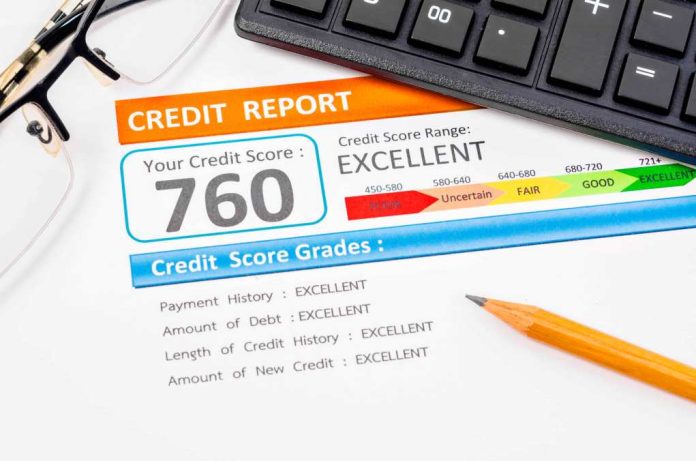
Your credit is an important part of your life! However, not many people have the knowledge they need in order to properly handle their credit. Without the proper credit education, you may make mistakes that you could have avoided with the proper information. However, we can try to help you get the information you need!
Credit Score vs Credit Report: Why You Need to Understand Both
We said earlier that it was important to understand credit terms and it’s actually true! Let’s look at it a little bit more in-depth. Your credit score is an important factor of life because it helps you with life events like purchasing a car, buying a house, getting a credit card and more. However, in order to properly manage your credit, you will need to have a clear understanding of what your score is. This can give you the context you need to get the knowledge that can help!
What is a Credit Score?
Your credit score is a number that typically falls between 300 and 850. Lenders use this credit score as a way to better understand how you handle your credit. This is known as your credit worthiness. A credit bureau (also known as a credit reporting agency) does your credit score calculation with information found on your credit report. Your credit report contains information about your credit file like credit accounts, auto loan payments, etc. There are three major credit bureaus which are Equifax, Experian, and Transunion.
The credit bureaus use credit scoring models in order to determine how each item on your credit report will impact your credit score. There are two main scoring models which are either the VantageScore model or the FICO scoring model. However, it is important to note that one scoring model is more popular than the other! In fact, the FICO scoring model is used by 90% of top lenders.
What Factors Affect Your Score?
Remember how we said the FICO scoring model is the more popular credit score model? Well, that will be important to keep in mind because that is what we will be using as reference to how each factor on this list can impact your FICO score. There are 5 main factors which are:
- Payment History
- Credit Utilization Ratio
- Length of Credit History
- Credit Mix
- Hard Inquiries
Payment History
Your payment history is one of the most important factors that affects your FICO score. That’s because it is one of the easiest ways that lenders can identify how you handle the money you borrow. This factor accounts for 35% of your credit score. Your payment history would include information like on time payments, late payments, etc.
Credit Utilization Ratio
This is the second most important factor to keep in mind! Your credit utilization ratio refers to your credit usage compared to your overall credit limit. Let’s take a look at an example so we can get a better understanding! For example, if you have a credit limit of $2,100 but are currently using $1,365 then your credit utilization ratio would be 65%. This factor accounts for 30% of your FICO score.
Length of Credit History
The third most impactful factor of your credit score is your length of credit history. This would account for the oldest age of your credit account, the newest age of your account, the average age of your accounts, etc. This factor makes up 15% of your FICO score.
Credit Mix
Another important factor to keep in mind is your credit mix. Many people don’t realize that there are a variety of different types of credit accounts. There are two main options! There are:
- Installment Loans
- Revolving Credit
Examples of installment loans would include a car loan, a mortgage, and more. On the other hand, an example of revolving credit would be a credit card. This factor accounts for 10% of your FICO score.
Hard Inquiries
Finally, the last factor on this list are hard inquiries. This factor accounts for 10% of your FICO score just like with your credit mix. There are two types of inquiries when it comes to your credit:
- Hard Inquiries
- Soft Inquiries
While soft inquiries do not impact your credit score, hard inquiries do. That’s because hard inquiries (also known as hard pulls) are what lenders need when they get an in-depth look at your credit file. Hard inquiries require written authorization from the consumer in order to grant this access!
What Kind of Score Do You Have?
Since there are different scoring models, each scoring model will determine how each item on your credit report will impact your score. They also have different groupings of scores when it comes to whether or not they are poor, very good, etc. According to the FICO Scoring model:
- Poor (scores between 300-579)
- Fair (scores between 580-669)
- Good (scores between 670-739)
- Very Good (scores between 740-799)
- Exceptional (scores between 800-850)
However, this is different from the VantageScore model. According to the VantageScore model:
- Very Poor (credit scores that are between 300-499)
- Poor (credit scores that are between 500-600)
- Fair (credit scores that are between 601-660)
- Good (credit scores that are between 661-780)
- Excellent (credit scores that are between 781-850)
However, it is important to note that there are different versions of the scoring models. So some scoring models may be different from other versions of the same model!
What is a Credit Report?
When we talked about your credit score, we brought up that it depends on information found on your credit report. That is why you really need to have a clear understanding of what a credit report is when learning about credit.
Your credit report is a breakdown of your credit file that is done by credit bureaus. However, there are three national credit bureaus so these are the ones that are most important! It’s like a report of your credit (which is why the name is credit report!). This report is created based on financial information that credit bureaus collect.
Do Credit Reports Include Credit Scores?
People can get one free copy of their credit report every year. When they get their report, they may also try to see what their credit score is. However, generally speaking your credit report will not include your credit score. Luckily, there are other ways that you can check your score! You can:
- Check with your credit card companies
- Use a third party app
Commonly Asked Questions
When people begin their journey of learning about credit, it can be confusing. That’s why people have had questions that you may have too after reading this article!
What are Different Types of Credit Accounts on Your Credit Report?
There are two main types of accounts. There are installment loans and revolving credit! For example, if you have a car loan then your credit report will contain information about your payment history, credit history, etc.
How to Get a Free Credit Report?
If you want to get a free copy of your credit report then you can visit AnnualCreditReport.com online. This site allows consumers to get their free report or get their report at any point in the year. However, you may face a small fee if you try to get more than one report annually.
Credit Score vs Credit Report: Which is Better?
Neither option is “better”. Your credit report contains information about your credit file. This information is used by credit bureaus in order to calculate your score. Neither one is better!
Bottom Line
Your credit score is important when it comes to reaching life events like getting a car, buying a home, etc. However, many people don’t have the financial knowledge they need when it comes to their score. Important information to know includes an in-depth understanding of your credit score and how your credit report is important.
Your credit score is a number that typically falls between 300 and 850. Lenders use this credit score as a way to better understand how you handle your credit. This is known as your credit worthiness! Your credit score calculation is done by credit bureaus that use information found on your credit report. Your credit report contains information about your credit file like credit accounts, auto loan payments, etc.
On the other hand, your credit report is a breakdown of your credit file that is done by credit bureaus. However, there are three major credit bureaus so these are the ones that are most important! It’s like a report of your credit (which is why the name is credit report!). This report is created based on financial information that credit bureaus collect.
Having this knowledge can help you better understand your score which can help you understand how you can better deal with your score. If you need any help you can get in touch with a professional like a credit counselor or your local personal banker.
Article References
https://mygreatlakes.org/educate/knowledge-center/credit.html
https://www.investopedia.com/terms/c/credit_score.asp
https://www.investopedia.com/terms/c/creditreport.asp
https://www.equifax.com/personal/education/credit/score/how-to-check-credit-score/
https://www.annualcreditreport.com/index.action




























